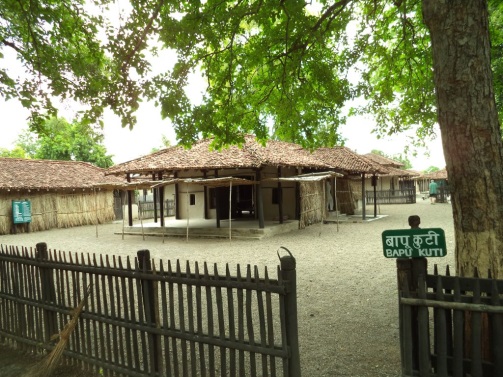Can one go against the grain and read the Indian political leader M.K. Gandhi’s conception of latent worlds or silent environmental frames, in terms of what latency or silence excludes from itself? For instance, in the mid 1930s, in Gandhi’s political imagination, a background latticework of such seemingly silent, absolute inertial frames as agrilogistics, celestiality, the sky and the stars, was tacitly implicated in the transpiring of human everydayness. And yet, paradoxically, the very existence of these absolute, deep environmental frameworks, was itself predicated on a constitutive separation from the foreground spaces of human everydayness.
The Forgetting of Space in Latent Worlds: Gandhi and the Architecture of Ecological Silence in 20th Century India
Venugopal Maddipati (Ambedkar University, New Delhi/ Art Histories Fellow 2016/17)
Forum Transregionale Studien, Wallotstr. 14, 14193 Berlin

How, then, to approach the British Spiritualist Madeline Slade’s architectural design of Bapu Kuti: Gandhi’s house in the village of Segaon in the Wardha district in West Central India, from the perspective of a politics predicated on the necessity of a separation from architecture itself? Tentatively titled The Forgetting of Space in Latent Worlds, Venugopal’s book project draws on Madeline Slade’s architectural designs and suggests that engaging with Gandhi’s notions of ecology and architecture in colonial and post-colonial India, must involve paying greater attention to his enigmatic negations of his own spatial involvements. More broadly, Venugopal argues that tarrying with a Gandhi of determinate negations demonstrates his salience less as a planetary thinker or as an intellectual resource for thinking through a silent, beyond human, deep ecology in a time of climate change, and more as a global thinker, inextricably enmeshed in this-worldy discursive engagements in architectural space.
Venugopal Maddipati is Assistant Professor at the School of Design at Ambedkar University, Delhi. He trained as an architect at the School of Planning and Architecture, Delhi, and subsequently pursued an MA and a PhD in art history at the University of Minnesota. He is currently finishing his monograph titled The Forgetting of Space in Latent Worlds: Gandhi and Architecture in 20th and 21st Century India. He is also working on an edited volume with Sugata Ray titled The Materiality of Liquescence: Water Histories in South Asia, 1500–2000. He broadly engages with themes related to Architecture, Philosophy, Geology, Ecocriticism and the Environmental Humanities in South Asia.

